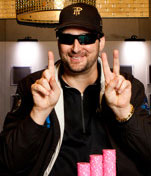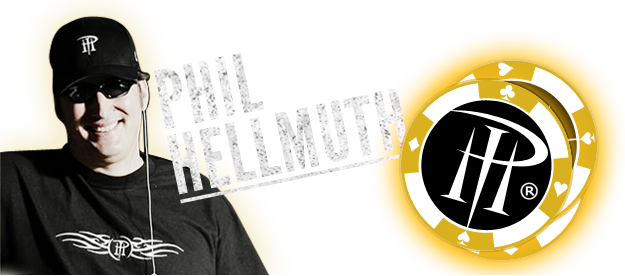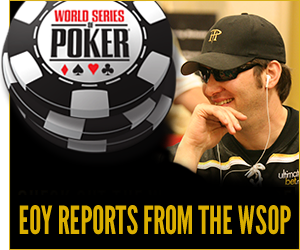-
No ‘Blow-Up’ for Matusow
Mike “The mouth” Matusow is one of the best NLH (no-limit Hold ’em) players in the world. He understands more about the game than almost anyone else. If he could just avoid “The Mike Matusow Blow-Up” (coined by ESPN’s Norman Chad), then he would own many more titles, and many World Series of Poker bracelets in NLH. Matusow’s recurring blow-ups occur when he makes a crazy move — usually for all of his chips — for no good reason. When Matusow blows up, he himself will tell you that he blew up. For the record, Matusow does have two WSOP bracelets, both in a high-low split poker game called Omaha 8/b.
At the first tournament of the 2006 WSOP, Matusow had a decent chance to defend his Tournament of Champions title. We started with 27 players (I finished 22nd or so), and when they made it down to the final three, Matusow had roughly 25 percent of the chips. However, he went on to finish in third place, which made for a great start to his 2006 WSOP. He started out well, but let’s see how he finished (50 days later) in the main event. At the ESPN televised table, with the blinds at $100-$200, amateur Vinny Jadav (from Birmingham, England) opened on the button for $700 with Kd-Jd. Matusow — from the big blind — made it $2,300 to go with 7h-7c. Jadav called, the flop came down 9d-7s-4d, and Matusow bet out $2,100. Jadav then moved all-in for Matusow’s last $6,800. Matusow called, the turn card was the Ah, and the river was the 3d, which completed Jadav’s diamond flush and sent Matusow to the rail.
Let’s take a closer look at the action during this hand. Jadav’s raise to $700 before the flop was natural. He made a raise with a good hand with the advantage of good position. Matusow’s reraise to $2,300 to go is OK with me, although I prefer to merely call the $700 bet and keep the pot smaller. If you are to reraise pre-flop as Matusow did, then make sure you raise it up a big amount like Matusow did (he raised it $1,600 more into a $1,500 pot) to give yourself a good chance to win the pot right then and there. As to Javad’s $1,600 call of Matusow’s reraise, I hate this call. Why call $1,600 more before the flop with Kd-Jd when you only have $10,000 in chips? Also, why call $1,600 more into a $1,500 pot with Kd-Jd? It doesn’t make sense to me that Javad would want to play such a big pot with a hand this weak, especially against one of the best players in the world. I always say, “Bring your big guns to a war.” In other words, wait for a strong hand before you put in a lot of chips. By the way, 7h-7c will win the pot 51 percent of the time vs. Kd-Jd.After the flop, I love Matusow’s $2,100 bet for these three reasons. First, too many players check the flop — trying to trap their opponents — after hitting a huge hand like trip sevens, and therefore they do not give themselves a chance to win a big pot. Second, Matusow knows that he has a reputation of being aggressive, and a check would look suspicious. Third, it is expected that Matusow would bet a hand like A-K, A-Q, or bluff with a weaker holding on the flop. Thus Matusow’s bet doesn’t mean as much as most peoples bets, and because of this he has a chance to get called with A-K, or A-Q, or any pair — which is pretty sweet for him. As to Javad’s all-in move on the flop, it’s not my style, that’s for sure. In the old days, the common wisdom said that moving all-in with a flush draw and two over cards (over the highest card on board) was the right way to play. After all, moving all-in on the flop gives you two chances to win the pot: firstly, your opponent could fold, and secondly, you could hit your hand. However, I never bought into the common wisdom of the old days; instead I tried to do things my way. By moving all-in for $6,800 more, Javad does indeed give himself two chances to win the pot (as I previously mention); however he also gives himself a chance to lose most of his chips on a drawing hand. If Javad just calls $2,100 on the flop, then perhaps Matusow would have only bet another, say, $2,000 on the turn, giving Javad a chance to save some big money ($4,800 in this example) if he misses his hand.
In NLH, most times the perfect play comes down to the way you “Read” your opponent. In this case (ideally): if you felt that Matusow was weak, then you would move all-in after he bet $2,100 and force him to fold his hand; and, if you felt that Matusow was strong, then you would want to call the $2,100 bet. In any case, Matusow was a 3-to-1 favorite on the flop, when most of the money went in. So no blowup this year for the mouth, just an old fashioned bad beat.
Related Posts
- The Holiday Game
- Poker for Police Officers
- Furst Versus Worst
- Cunningham Going for the Gold
- Winning from the Hole
- After-Hours Poker
- Key Hand at European Poker Championships
- Make the Most of It!
- One Tough Poker Game
- My Big ‘Over Bet’
Recent Posts
- WSOPE 2nd place finish
- Update from this years WSOP 2019
- Happy Holidays! Updated stock at Poker Brat, new book!
- Phil Hellmuth wins historic 15th World Championship!
- Final golden ticket winner coming soon
- Poker Brat – The Phil Hellmuth Jr. Autobiography
- Phil Hellmuth’s “Pokerbrat” – Coming soon to audio book!
- Poker Night in America – Sugar House Casino
- Sugar House w Matt Glantz
- Lost and found

 ™
™








